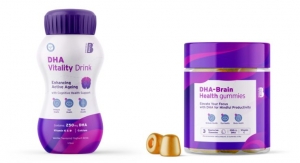11.18.13
While Americans generally consume enough protein, they tend to eat a small amount at breakfast, moderate amounts at lunch, and the largest amount at dinner. New research presented at The Obesity Society’s annual scientific meeting in Atlanta showed that eating high protein sausage and egg-based breakfasts curbed hunger throughout the morning, compared with a low-protein breakfast (pancakes and syrup) or skipping breakfast, in 18-55-year-old women.
“Eating a breakfast rich in protein significantly improves appetite control and may help women to avoid overeating later in the day,” said Kevin C. Maki, principal investigator of the study and a research scientist with Biofortis Clinical Research, a Mérieux NutriSciences company.
All of the breakfast meals contained approximately 300 calories and similar quantities of fat and fiber. The protein-rich breakfast bowls contained 30 to 39 grams of protein. Participants completed questionnaires to rate aspects of appetite—such as hunger, fullness, and desire to eat—before breakfast and at 30 minute intervals between breakfast and lunch. A standard lunch meal of tortellini and sauce was served and subjects were asked to eat until comfortably full. Study participants had improved appetite ratings (lower hunger, more fullness, less desire to eat) throughout the morning after eating each protein-rich breakfast, and also ate fewer calories at lunch, compared with the low-protein breakfast and breakfast skipping (water only).
“In the USA, many people choose to skip breakfast or choose low protein foods because of lack of high protein convenient choices. These results demonstrate that commercially prepared convenient protein-rich meals can help women feel full until lunch time and potentially avoid overeating and improve diet quality,” said Heather Leidy, an assistant professor specializing in appetite regulation at the University of Missouri and a co-author on the study.
The research titled, “Acute Satiety Effects of Sausage/Egg-based Convenience Breakfast Meals in Premenopausal Women,” was presented at the Obesity Society’s annual scientific meeting in Atlanta on Nov. 14. The study was a joint effort by Biofortis Clinical Research, Chicago, a division of Mérieux NutriSciences, and the University of Missouri’s Department of Exercise Physiology and Nutrition, Columbia, MO. Funding for the research was provided by Hillshire Brands, Chicago.
“Eating a breakfast rich in protein significantly improves appetite control and may help women to avoid overeating later in the day,” said Kevin C. Maki, principal investigator of the study and a research scientist with Biofortis Clinical Research, a Mérieux NutriSciences company.
All of the breakfast meals contained approximately 300 calories and similar quantities of fat and fiber. The protein-rich breakfast bowls contained 30 to 39 grams of protein. Participants completed questionnaires to rate aspects of appetite—such as hunger, fullness, and desire to eat—before breakfast and at 30 minute intervals between breakfast and lunch. A standard lunch meal of tortellini and sauce was served and subjects were asked to eat until comfortably full. Study participants had improved appetite ratings (lower hunger, more fullness, less desire to eat) throughout the morning after eating each protein-rich breakfast, and also ate fewer calories at lunch, compared with the low-protein breakfast and breakfast skipping (water only).
“In the USA, many people choose to skip breakfast or choose low protein foods because of lack of high protein convenient choices. These results demonstrate that commercially prepared convenient protein-rich meals can help women feel full until lunch time and potentially avoid overeating and improve diet quality,” said Heather Leidy, an assistant professor specializing in appetite regulation at the University of Missouri and a co-author on the study.
The research titled, “Acute Satiety Effects of Sausage/Egg-based Convenience Breakfast Meals in Premenopausal Women,” was presented at the Obesity Society’s annual scientific meeting in Atlanta on Nov. 14. The study was a joint effort by Biofortis Clinical Research, Chicago, a division of Mérieux NutriSciences, and the University of Missouri’s Department of Exercise Physiology and Nutrition, Columbia, MO. Funding for the research was provided by Hillshire Brands, Chicago.



























